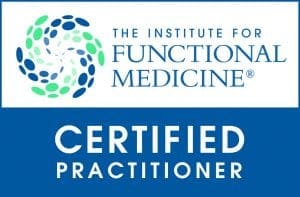Dietary changes, physical activity, and overall lifestyle modification have become cornerstone interventions to improve cardiometabolic disease outcomes. Despite the outstanding diffusion of treatment guidelines to stop or reduce cardiometabolic disease, there is so much to be done. Furthermore, an endless number of metanalysis is dedicated to studying the effects of lifestyle changes like modifying dietary patterns or shifting to a vegetarian diet and contributing to cardiometabolic risk factors.
Furthermore, cardiometabolic disease has a broad-spectrum, which can be flared by insulin resistance in its first stages. Eventually, this first condition will develop into metabolic syndrome and potentially turn into type 2 Diabetes Mellitus and cardiovascular disease (CVD), the two most common diseases associated with high morbidity and mortality rates in the United States.
The Cardiometabolic Disease Staging
Dietary changes, physical activity, and overall lifestyle modification have become cornerstone interventions to improve cardiometabolic disease outcomes. Despite the outstanding diffusion of treatment guidelines to stop or reduce cardiometabolic disease, there is so much to be done. Furthermore, an endless number of metanalysis is dedicated to studying the effects of lifestyle changes like modifying dietary patterns or shifting to a vegetarian diet and contributing to cardiometabolic risk factors.
Furthermore, cardiometabolic disease has a broad-spectrum, which can be flared by insulin resistance in its first stages. Eventually, this first condition will develop into metabolic syndrome and potentially turn into type 2 Diabetes Mellitus and cardiovascular disease (CVD), the two most common diseases associated with high morbidity and mortality rates in the United States.
Table of Contents
The Cardiometabolic Disease Staging (CMDS) system
CMDS is a risk classification system that allows physicians to evaluate the patient’s risk status. Nevertheless, this classification system used clinical parameters proposed by the Adult Treatment Panel III (ATP III) to diagnose metabolic syndrome and was validated by the CARDIA study as well by NHANES III-linked mortality file.
CMDS |
||
| Stage | Descriptor | Criteria |
| Stage 0 | Metabolically healthy | No risk factors |
| Stage 1 | One or two risk factors | Have one or two of the following risk factors:
(a) Â High waist circumference (>112 cm in men and >88 cm in women) (b) Â Elevated blood pressure (systolic >130 mmHg and/or diastolic >85 mmHg) or on antihypertensive medication (c) Â Reduced serum HDL cholesterol (<1.0 mmol/L or 40 mg/dL in men; <1.3 mmol/L or 50 mg/dL in women) or on medication (d) Â Elevated fasting serum triglycerides (>1.7 mmol/L or 150 mg/dL) or on medication |
| Stage 2 | Metabolic syndrome or prediabetes | Have only one of the following three conditions in isolation (a) Metabolic syndrome based on three or more of four risk factors: high waist circumference, elevated blood pressure, reduced HDL-C, and elevated triglycerides(b) Impaired fasting glucose (IFG; fasting glucose >5.6 mmol/L or 100 mg/dL) (c) Impaired glucose tolerance (IGT; 2-h glucose >7.8 mmol/L or 140 mg/dL) |
| Stage 3 | Metabolic syndrome + prediabetes | Have any two of the following three conditions: (a) Metabolic syndrome (b) IFG (c) IGTÂ |
| Stage 4 | T2DM and/or CVD | Have type 2 diabetes mellitus (T2DM) and/or cardiovascular disease (CVD):
(a) T2DM (fasting glucose >126 mg/dL or 2-h glucose >200 mg/dL or on antidiabetic therapy) (b)active CVD (angina pectoris or status post a CVD event such as acute coronary artery syndrome, stent placement, coronary artery bypass, thrombotic stroke, nontraumatic amputation due to peripheral vascular disease  |
Non-pharmacologic approaches to reduce cardiometabolic risk:
Â
Dash Diet:
Â
The acronym DASH stands for Dietary Approaches to Stop Hypertension. Indeed, the CMDS system includes high blood pressure as a risk factor for cardiometabolic disease. Furthermore, the DASH diet emphasizes fruit, fat-free/low-fat dairy, whole grains, legumes, and nuts. On the other hand, this diet focuses on lowering dietary cholesterol intake, saturated fat, sugar, salt, red, and processed meats.
In an umbrella review that measured the positive effect of the DASH diet on cardiometabolic and cardiovascular outcomes, a positive result was found in the next conditions:
| Coronary heart disease |
| Stroke incidence |
| Diabetes incidence |
| Reduced blood pressure |
| Blood lipids |
| Glycemic control |
| Bodyweight |
| Inflammation |
The observation made in this review found an impactful correlation with the ingestion of fruits and vegetables of the DASH pattern and lower cardiovascular incidence and mortality. Also, grain and nuts consumption were associated with a 20-21% reduction of CVD incidence and a 14% drop in stroke incidence, while red meat consumption raised CVD incidence to a 15-18% risk of mortality. In terms of dietary fiber intake, each 7gr contributed to a 9% reduction in CVD and 22-24% in CHD.
DASH dietary pattern also raises the consumption of nutrient-rich food that contains magnesium, potassium, and phytochemicals. Indeed, these key nutrients are associated with lower levels of systolic blood pressure and lower mortality rate from stroke. Nevertheless, the studies determined that the potassium’s and calcium’s levels directly affected the plasma renin activity and contributed to the kidney excretion of sodium.
Besides, low-fat dairy, vegetables, and fruits characteristic of the DASH diet are linked to better glycemic control outcomes and a lower Type 2 DM incidence. Furthermore, fruits and vegetables were linked with higher nitric oxide levels, which in turn improved blood pressure.
Vegetarian diet:
Â
It is amazing what cutting some “beef†from our diet can do to our body. So are the contributions that a vegetarian dietary pattern has made to the treatment of cardiometabolic diseases. Indeed, a vegetarian diet has proven to have the same effects on cardiometabolic disease’s metabolic conditions.
A systematic review and meta-analysis of randomized controlled trials conducted by Viguiliouk and colleagues to study the effect of a vegetarian diet on glycemic control, weight, BMI, and waist circumference concluded that a vegetarian dietary pattern improved cardiometabolic markers.
Glycemic control:
Nevertheless, it was no easy task to follow up with the data analyzed in this review since a vegetarian pattern is described as the omission of some or all animal products. Indeed, 6,395 studies were excluded from 6,498 identified reports, but the findings were outstanding.
Blood lipids:
The results reported that following a 3week period of a vegetarian diet; patients could have reduced HbA1c, better fasting glucose and insulin, resulting in better glycemic control. When a vegetarian diet was compared to the control diet, blood lipids showed marked improvements such as reduced LDL-C and non-HDL-C but no significant improvements in triglycerides and HDL-C.
The previous reviews conclude that we can all improve our health outcomes with a balanced diet. Making a change is difficult for most of us, and I have found that my metabolic syndrome patients and my diabetic patients struggle without the help of a personalized diet. As a matter of fact, there a large amount of information out there; it is scary. I would be confused, as well. Remember that the right information and treatment for these conditions should be recognized by the general dietary guidelines and that associations like USDA, NHLBD, AHA, and ADA in the US; and your healthcare provider should follow these guidelines.- Ana Paola RodrÃguez Arciniega. Master in Clinical Nutrition
Read more and learn more:
professional.heart.org/en/guidelines-and-statements
www.nal.usda.gov/fnic/dietary-guidance-0
Viguiliouk, Effie, et al. “Effect of vegetarian dietary patterns on cardiometabolic risk factors in diabetes: a systematic review and meta-analysis of randomized controlled trials.” Clinical Nutrition 38.3 (2019): 1133-1145.
Chiavaroli, Laura, et al. “DASH dietary pattern and cardiometabolic outcomes: An umbrella review of systematic reviews and meta-analyses.” Nutrients 11.2 (2019): 338.
General Disclaimer
Professional Scope of Practice *
The information herein on "Diet and Cardiometabolic Disease" is not intended to replace a one-on-one relationship with a qualified health care professional or licensed physician and is not medical advice. We encourage you to make healthcare decisions based on your research and partnership with a qualified healthcare professional.
Blog Information & Scope Discussions
Welcome to El Paso's Premier Wellness and Injury Care Clinic wellness blog, where Dr. Alex Jimenez, DC, FNP-C, a board-certified Family Practice Nurse Practitioner (FNP-C) and Chiropractor (DC), presents insights on how our team is dedicated to holistic healing and personalized care. Our practice aligns with evidence-based treatment protocols inspired by integrative medicine principles, similar to those found on dralexjimenez.com, focusing on restoring health naturally for patients of all ages.
Welcome to El Paso's Premier Wellness and Injury Care Clinic & wellness blog, where Dr. Alex Jimenez, DC, FNP-C, a board-certified Family Practice Nurse Practitioner (FNP-C) and Chiropractor (DC), presents insights on how our team is dedicated to holistic healing and personalized care. Our practice aligns with evidence-based treatment protocols inspired by integrative medicine principles, similar to those found on dralexjimenez.com, focusing on restoring health naturally for patients of all ages.
Our areas of chiropractic practice include Wellness & Nutrition, Chronic Pain, Personal Injury, Auto Accident Care, Work Injuries, Back Injury, Low Back Pain, Neck Pain, Migraine Headaches, Sports Injuries, Severe Sciatica, Scoliosis, Complex Herniated Discs, Fibromyalgia, Chronic Pain, Complex Injuries, Stress Management, Functional Medicine Treatments, and in-scope care protocols.
Our information scope is limited to chiropractic, musculoskeletal, physical medicine, wellness, contributing etiological viscerosomatic disturbances within clinical presentations, associated somato-visceral reflex clinical dynamics, subluxation complexes, sensitive health issues, and functional medicine articles, topics, and discussions.
We provide and present clinical collaboration with specialists from various disciplines. Each specialist is governed by their professional scope of practice and their jurisdiction of licensure. We use functional health & wellness protocols to treat and support care for the injuries or disorders of the musculoskeletal system.
Our videos, posts, topics, subjects, and insights cover clinical matters, issues, and topics that relate to and directly or indirectly support our clinical scope of practice.*
Our office has reasonably attempted to provide supportive citations and has identified the relevant research studies or studies supporting our posts. We provide copies of supporting research studies available to regulatory boards and the public upon request.
We understand that we cover matters that require an additional explanation of how they may assist in a particular care plan or treatment protocol; therefore, to discuss the subject matter above further, please feel free to ask Dr. Alex Jimenez, DC, APRN, FNP-BC, or contact us at 915-850-0900.
We are here to help you and your family.
Blessings
Dr. Alex Jimenez DC, MSACP, APRN, FNP-BC*, CCST, IFMCP, CFMP, ATN
email: coach@elpasofunctionalmedicine.com
Licensed as a Doctor of Chiropractic (DC) in Texas & New Mexico*
Texas DC License # TX5807
New Mexico DC License # NM-DC2182
Licensed as a Registered Nurse (RN*) in Texas & Multistate
Texas RN License # 1191402
ANCC FNP-BC: Board Certified Nurse Practitioner*
Compact Status: Multi-State License: Authorized to Practice in 40 States*
Graduate with Honors: ICHS: MSN-FNP (Family Nurse Practitioner Program)
Degree Granted. Master's in Family Practice MSN Diploma (Cum Laude)
Dr. Alex Jimenez, DC, APRN, FNP-BC*, CFMP, IFMCP, ATN, CCST
My Digital Business Card




















